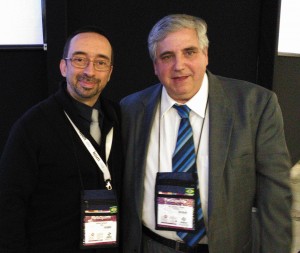ABED Congress. Post #3: Is peer-review the best evaluation process?

Furthermore, if a publication is thoroughly written and honestly written, and it is accurate, the end-users will validate the usefulness and impact of that publication. This process faces opposite to the usual scientific peer-review flow, where other academic members evaluate whether the publication is good enough for a journal, no matter what the end-users can say.
Peer-review is thorough and partial and it depends on the reviewers and it is slow. But good papers could come out of that discussion.
Certainly, this is fast-track on editing and publishing and brings a long-time discussion: is it really useful a blind-review paper that almost nobody will read, eventually? Or is it more useful a direct publication in a good pipeline where the users can access and read?

Find out more at: ABED Congress. Post #3: Is peer-review the best evaluation process for a scientific publication?
Daniel Burgos
Aguas de Lindoia, Sao Paulo, Brazil. September, 21st, 2016
22nd International Congress of Distance Education CIAED
(ABED: Brazilian Association of Distance Education) )
